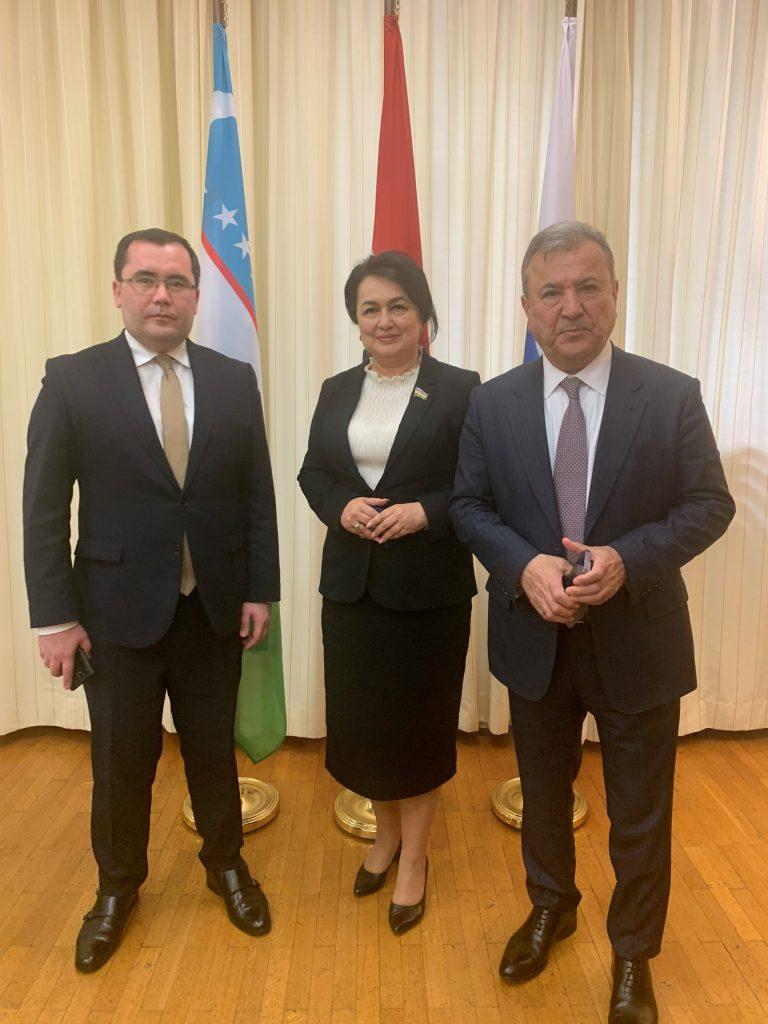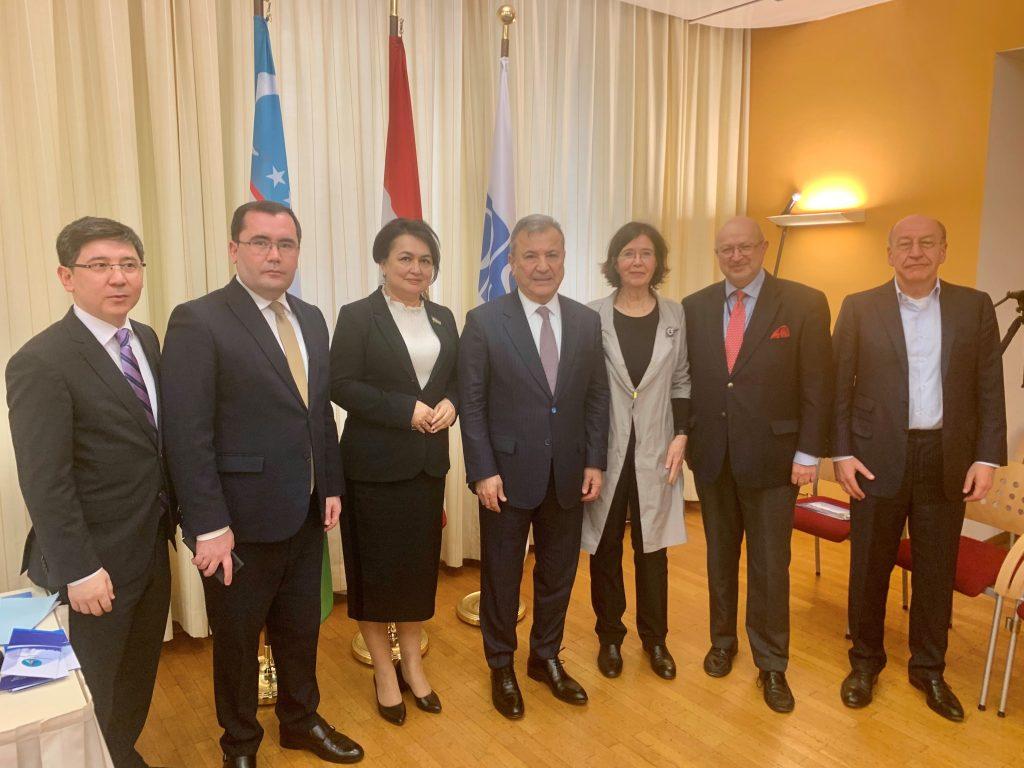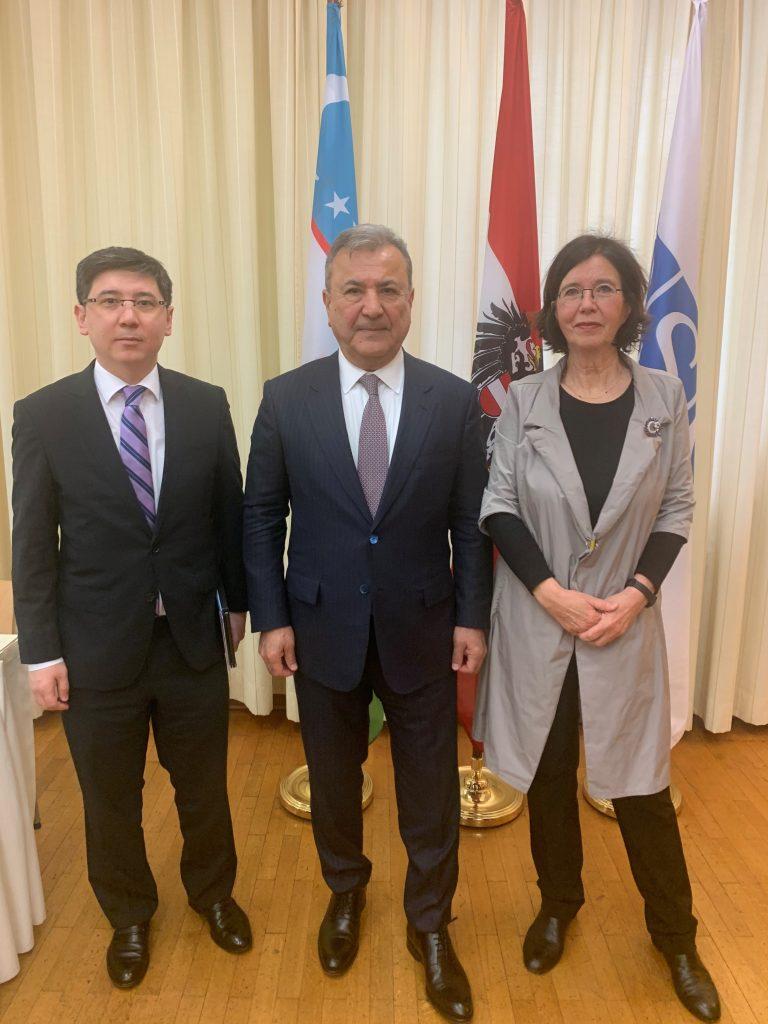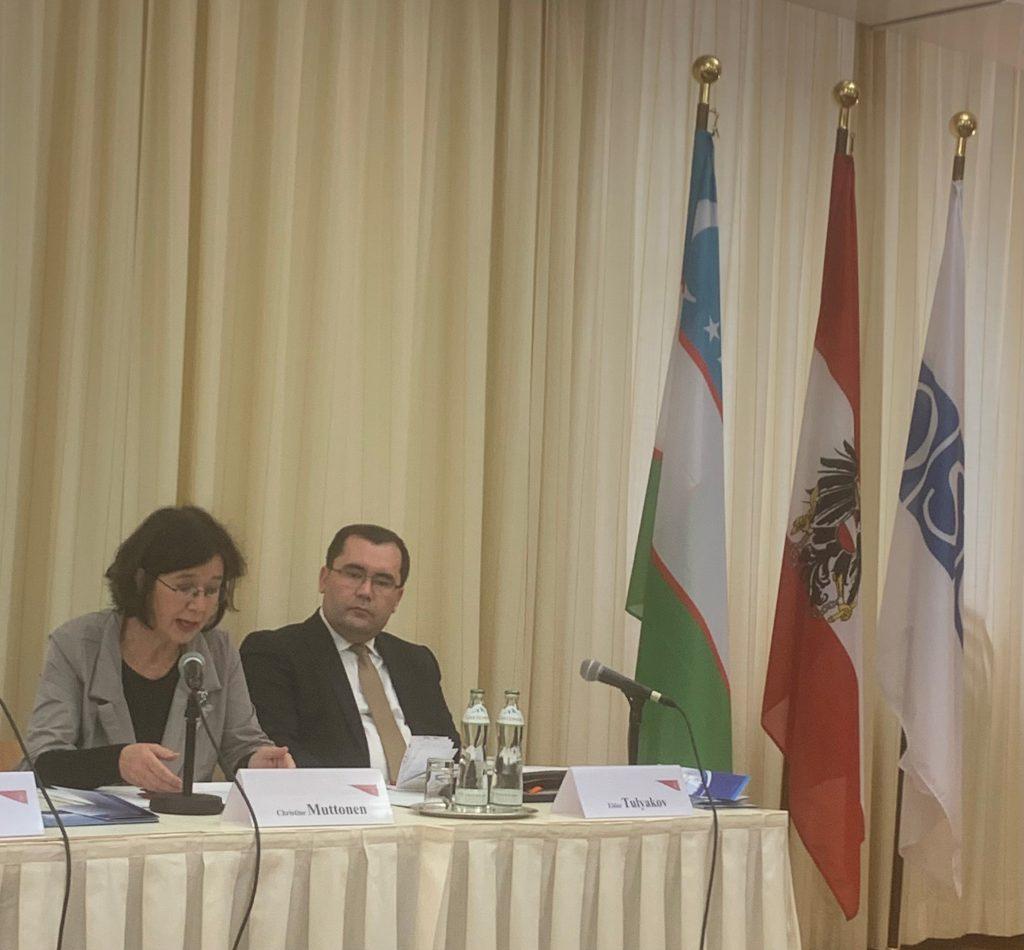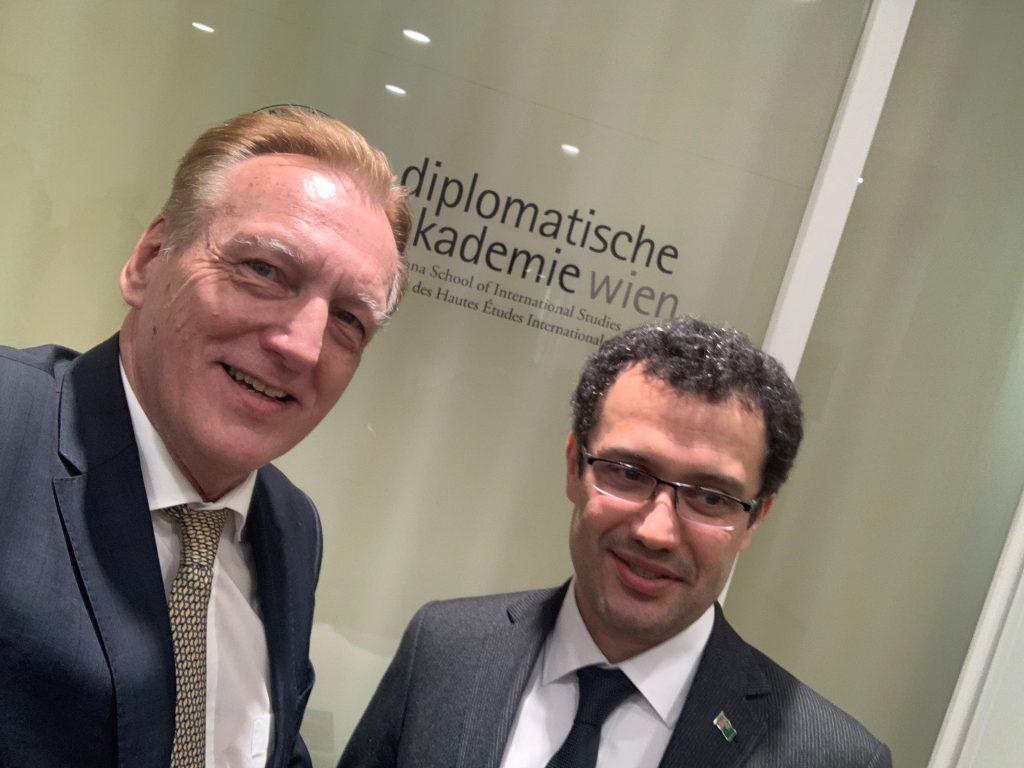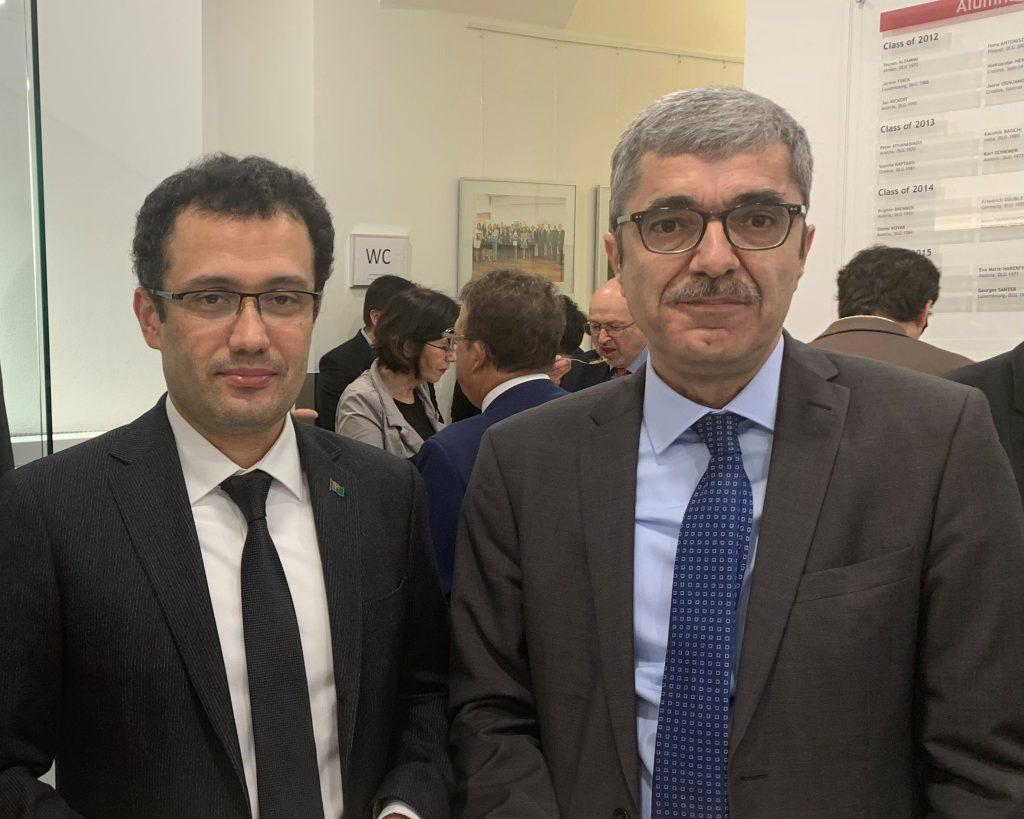The Vienna School of International Studies and the Embassy of the Republic of Uzbekistan in Austria invited to a panel discussion on ‘Constitutional Reforms in New Uzbekistan’ and a presentation of the Development Strategy 2022 – 2026.
Emil Brix, Director of the Diplomatic Academy Vienna, welcomed the high-ranking delegation from Uzbekistan: Sodiq Safoev, First Deputy Chairman of the Senate of the Oliy Majlis -Parliament, Executive Director Eldor Tulyakov of the Development Strategy Center in Tashkent and Dilorum Fayzieva, Chairperson of the Committee on International Affairs and Inter-Parliamentary Relations at the Legislative Chamber of the Oliy Majlis. Christine Muttonen, Vice-President of the Austrian Institute for European and Security Policy, moderated the panel.
After his re-election in 2021, Uzbekistan’s President Shavkat Mirziyoyev announced the reform of the constitution during his inaugural speech. The draft constitution should be adopted through national discussion and a referendum. Constitutional reform will create the legal basis for further democratization of Uzbekistan and will help support an inclusive transition to a private-sector-led economy by strengthening market institutions and ensuring all citizens take part in the benefits of economic growth. The EU is seen as an important partner to build up a statehood based on western values.
Creating a robust economy
Uzbekistan has become much more resilient to external shocks. GDP increased by 25 percent in the last five years of reforms. One of the seven pillars of the Development Strategy of New Uzbekistan 2022 – 2026 is the creation of a robust national economy that ensures rapid growth. The goals reflect the opportunities for cooperation:
o Increase GDP per capita in the next five years by 1.6 times and per capita income by 2030 over 4.000 US-dollars.
o Increase the volume of industrial production by 1.4 times
o dramatically increase the volume of geological prospecting activities
o Provide an uninterrupted supply of energy and the introduction of ‘green economy’ technologies in all sectors, increasing the economy’s energy efficiency by 20 percent
o Increase the size of the digital economy by at least 2.5 times, making it the primary economic driver of the economy
o Improve Uzbekistan’s investment climate to attract $ 120 billion, including $ 70 billion in foreign investment
o Expand the economy’s financial resources through an increased stock market turnover from $ 200 million to $ 7 billion.
o Bring the country’s exports to $ 30 billion by 2026 by increasing the country’s export potential
o Increasing the share of the private sector in GDP to 80 percent and exports to 60 percent
o Multiple the income of farmers by at least 2 times through intensive development of agriculture on a scientific basis, increasing the annual growth of agriculture to at least 5 percent
o Reform the water management system and implement a separate state program on water economy
o Expand the livestock feed base and increase production by 1.5 to 2 times
o Increase the regional economy by 1.4 to 1.6 times through proportional development of the regions
o Develop engineering-communication and social infrastructure systems and services in the regions
o Attract 12 million tourists and increase the number of foreign tourists visiting the country to 9 million
o Develop a unified transport system connecting all modes of transport, both inner-city transport and between major metropolitan transportation hubs
The EU is seen as an important partner to build up a statehood based on western values.
Dynamic Austrian – Uzbek economic ties
President Mirziyoyev’s ambitious market-oriented reforms brought Uzbekistan more and more on the radar of the global and Austrian business community. Uzbekistan is the most populous state in Central Asia (36 million inhabitants) with a diversified industry. Great areas for cooperation are e.g. water management, energy, health care, digitization, agribusiness, or infrastructure. Uzbekistan is Austria’s second largest trading partner in Central Asia. Austrian exports to Uzbekistan, for the first time, surpassed 100 million Euro in 2019 before the Covid-19 outbreak. Uzbekistan is the rising star in Central Asia and as such an attractive destination for business, investment and tourism.
Text and photos: Dr. Rudolf Thaler
